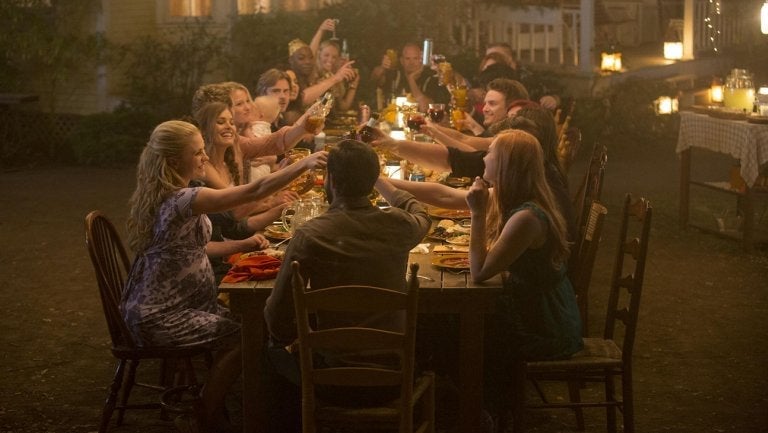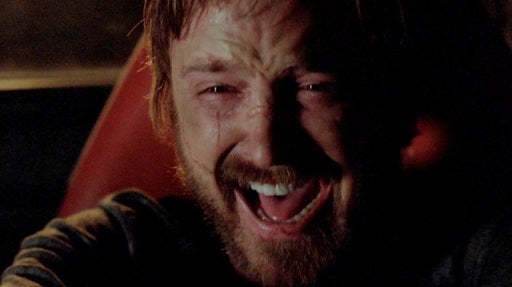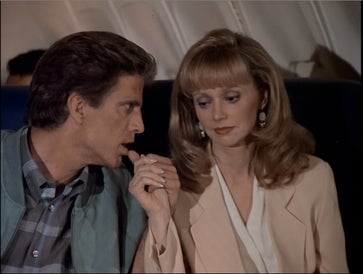TV history tells us “Game of Thrones” will end in one of six ways
It’s Sunday night, and the final moments of Game of Thrones are playing out in your living room. After every major character has died, the camera pans over a gently stirring dragon egg, and the scene fades to black. You turn off the TV and stretch, evaluating the life choices that led to your spending more than 70 hours watching this show. And GoT, like so many shows before it, joins a canon of beloved television that faced immense pressure to bring it all home in a series finale.


It’s Sunday night, and the final moments of Game of Thrones are playing out in your living room. After every major character has died, the camera pans over a gently stirring dragon egg, and the scene fades to black. You turn off the TV and stretch, evaluating the life choices that led to your spending more than 70 hours watching this show. And GoT, like so many shows before it, joins a canon of beloved television that faced immense pressure to bring it all home in a series finale.
We’ve boiled the quintessential series ending down to six archetypes, any of which could indicate what’s in store for Game of Thrones. (Spoilers ahead… albeit dated ones.)
What do YOU think happened? (The ambiguous ending)

The ambiguous finale is a classic of prestige television, and borrows heavily from literature to instill some productive confusion. In this ending, what exactly happens is left to the audience to interpret (unless the auteur behind the project decides to chime in).
Purpose: While this type of ending can be maddening for those seeking closure, it leaves space for fans to continue inhabiting the world of the show, and can ensure the show lingers in viewers’ minds and the cultural conversation. (Who’s such a bore that they’re still talking about whether Don made the Coke ad or not? Me. My lonely vigil will never end.)
Examples:
- Head-scratching-ly poetic: Mad Men, The Leftovers
- Poetically head-scratching: The Sopranos, Nurse Jackie
Odds for GoT: 1:32
And they all lived happily ever after. (The flash-forward)

The flash-forward is exactly what it sounds like: The show jumps years ahead to check in on the characters you’ve known and show what will become of them. This can be metaphorical (Scrubs) or actual (Six Feet Under). It can be built into the core of the show (How I Met Your Mother) or random (True Blood). The important thing is that viewers get an outsized measure of closure.
Purpose: Think of this type of ending as the ultimate stab at fan service, answering viewers’ questions before they even ask them. It’s a maximalist approach at storytelling that tries to fill out as much of the world as possible. Along with ambiguous endings, it has the highest chance of being either wildly satisfying or widely spurned.
Examples:
- Good: Six Feet Under, Scrubs
- Bad: How I Met Your Mother
- So-bad-they’re-good: True Blood
Odds for GoT: 1:15
I die, so that you may live! (The sacrifice)

A classic since before the Bible, this form of ending demands that a character sacrifice themselves to atone for their misdeeds or those of others. In this scenario, the impending death of the main character generally functions as the motor of the final season’s plot—whether the audience realizes it beforehand or only in hindsight.
Purpose: Does the arc of the universe bend towards justice? Who’s to say. Does the arc of television shows bend towards justice? Yes. If this is how your TV show ends, odds are the character at the center of it wasn’t too great of a dude (usually it’s a dude). What better way to have them die for their sins than to literally have them die for their sins? Of course, you can also try a sort-of-exile-as-death too (but don’t, or you may end up like Dexter).
Examples:
- Widely-lauded: Breaking Bad, Boardwalk Empire, The Americans
- Dexter: Dexter
Odds for GoT: 1:1
I’ll really miss this place. (Moving on)

Remember when TV shows used to conclude with a figurative fade to black, as all the characters ended one phase of their lives and moved gracefully onto the next? I don’t either, but boy does it sound nice. Moving on—for characters and viewers—is easiest with this type of ending, where things don’t necessarily end so much as wrap up, with each plot tied up neatly and each character at the end of their years-long arc.
Purpose: This is the most traditional of all the endings and is often made possible by the organizing space of the show—a school, an office, a presidency—ceasing to exist. This type of ending is meant to provide closure, and let viewers know that this chapter in these characters’ lives is over. It’s the line drive of endings: a safe bet for not angering your audience. (Unless, like Game of Thrones, the show has built its existence on unpredictability.)
Examples:
- Comedy: The Office, Parks and Recreation, Cheers
- Drama: Friday Night Lights, The West Wing
- Dramady: Weeds
Odds for GoT: 1:32
And then I woke up. (Out of nowhere/Deus ex machina)

Think of it as the serialized version of a character waking up from a dream. This type of finale comes out of nowhere, and doesn’t hit the climax the series was building toward so much as completely sidestep it. This option usually explains away all minor hanging threads with one wave of the hand, and is without a doubt the hardest landing to stick.
Purpose: If done right, this type of ending can shock-and-awe an audience in a way no other can. But making it feel earned is almost impossible. Whatever the reception, it’s a surefire way to keep a finale in the conversation for years to come.
Examples:
- With foreshadowing: Lost, Battlestar Galactica
- Without foreshadowing: Dallas, Seinfeld, Newhart
Odds for GoT: 1:3
Same shit, different day (Nothing changes)

Last but not least, an ending that admits change often brings more of the same. This approach may close the arc on some of the characters you’ve become accustomed to, but it also very strongly points towards a future where the core drama of the story continues.
Purpose: This type of ending can be used to drive home the fact that the world moves on with or without our involvement. That though we may shuffle off this mortal coil, those around us will continue toward their own inevitable ends. In short, it points out that we are human, and thus implicated in systems over which we struggle to gain any real agency.
It can also be used to set up sequels and spinoffs.
Examples:
- HBO: The Wire, Sex and the City, Entourage
- Non-HBO: Angel
Odds for GoT: 1:7